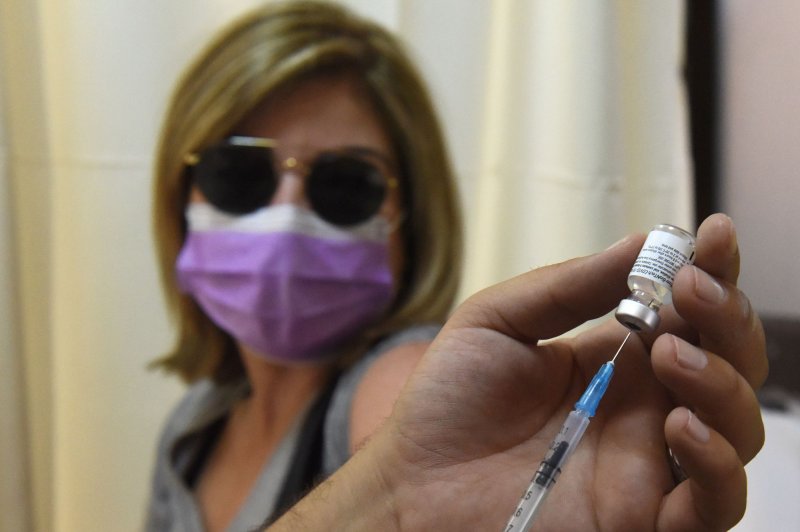
Sept. 15 (UPI) — President Joe Biden’s COVID-19 vaccine mandates for federal staff and certain private-sector employees should help the unvaccinated become vaccinated in the United States, and this effort is more important than booster shots, experts said Wednesday.
However, some public health specialists remain concerned that these mandates could “further polarize an already polarized environment,” potentially endangering more established inoculation requirements, such as early childhood vaccines, they said.
“We will not stop the Delta variant or COVID-19 until the world is vaccinated,” Dr. Anna Durbin, director of the Center for Immunization Research at Johns Hopkins University in Baltimore, said during a Zoom call with reporters Wednesday.
“Data on the need for booster shots is still coming in, but we really need to focus on getting the unvaccinated vaccinated before we can think about booster doses,” she said.
Biden’s plan, announced Thursday, should go a long way toward increasing vaccination rates nationally, she added.
Through Tuesday, 63% of the people eligible for the COVID-19 vaccines in the country — those 12 years old and older — are fully vaccinated, according to the Centers for Disease Control and Prevention.
This means they have received both doses of either the Moderna or Pfizer-BioNTech vaccines or the one-shot Johnson & Johnson product.
Still, more of the population will need to be fully vaccinated to bring the Delta variant, and the pandemic, under control, Durbin’s colleague, Daniel Salmon, said on the call.
“We see cases resurging and the preponderance of the Delta variant,” said Salmon, director of the Institute for Vaccine Safety at Johns Hopkins.
“We have the tools we need, including the vaccines, but we need high vaccine coverage” to end the pandemic, he said.
This is particularly true as the 2021-22 winter flu season approaches, he added. Although the country had a mild flu season last year, with schools closed and many people wearing face coverings, that could change this winter.
The CDC recorded more than 126,000 new cases of the virus — and nearly 1,000 deaths — nationally Monday, with the more contagious Delta variant involved in most of them.
However, to date, fewer than 1% — below 150,000 — of fully vaccinated people have developed so-called “breakthrough” infections, meaning they developed COVID-19 symptoms despite being fully vaccinated, the agency estimates.
In addition, symptoms in breakthrough infections are “for the most part mild to moderate,” Durbin said, adding, “The vaccines are effective against serious illness.”
In the past, Salmon has expressed concern over vaccine mandates, cautioning against “further polariz[ing] an already polarized environment,” he said.
Within that context, he worries that the new mandates announced by Biden could create a broader anti-vaccination movement, jeopardizing more established inoculation efforts such as routine childhood vaccinations against measles, mumps and rubella, among others.
COVID-19 vaccines are widely available, at no cost, and safe and effective, based on data from millions of recipients. But the urgency of the pandemic requires “doing things that have not typically been done” before, such as vaccine mandates, Salmon said.
Whether those same mandates will be applied to booster doses of the COVID-19 vaccines remains to be seen, and will depend on whether the country gets the pandemic under control, Durbin said.
Most studies suggest that immunity provided by the vaccines lasts six months or more, and perhaps longer.
Based on this data, many experts, including the World Health Organization, have advised against offering booster doses until more countries have access to the vaccine.
Biden suggested in August that booster doses would be made available to all of those fully vaccinated starting later this month, though the administration appears to have pulled back from that plan in recent weeks.
“If we cannot get the pandemic under control, we may need to think about booster shots every one to two years,” Durbin said.